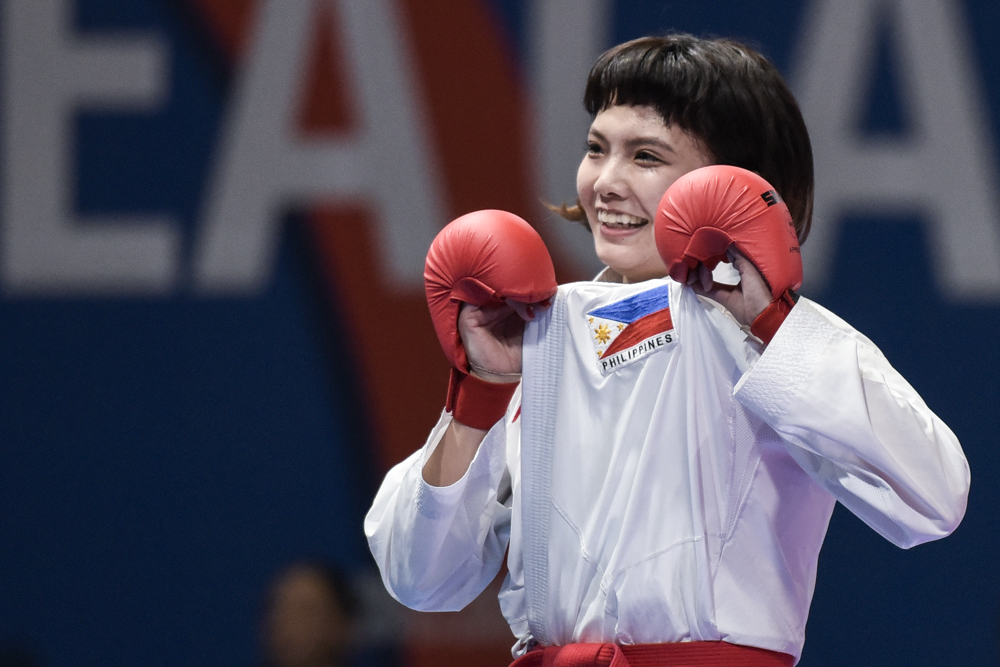
The Philippines’ Junna Tsukii celebrates her gold medal finish in the women’s Karatedo-50 kg of the 30th Southeast Asian Games. INQUIRER PHOTO/ Sherwin Vardeleon
MANILA, Philippines — There is no glory without adversity and Filipino-Japanese Junna Tsukii had overcome plenty of it throughout her rising karate career.
Tsukii introduced herself to Filipinos in 2017 when she took home the bronze medal in the Southeast Asian Games in Kuala Lumpur, Malaysia before bagging another bronze last year in the Asian Games in Jakarta, Indonesia.
But it was only after winning the gold medal in the recently-concluded 30th SEA Games where Tsukii finally gained the recognition she deserved.
The road to get to where she is now was never easy and Tsukii shared the struggles she went through and all the sacrifices she had to make.
Tsukii, who was raised in Japan, moved to the Philippines alone in 2017 and worked as a kindergarten teacher four times a week on top of her karate training for seven hours everyday. Knowing little English, she also studied the language on her own.
“The reason why I chose Philippines and not stay in Japan was that the Philippines is my motherland. Since it’s my mother’s country, I decided to fight for the development of Philippines’ Karate,” she wrote in a Facebook post.
“In April 2017, I left Japan alone and moved here in the Philippines. I was born in Pasay in Philippines, but since I moved to Japan when I was still very young, I don’t have much memories of myself in the Philippines.”
Then she tore her ACL after the SEA Games in 2017, an injury that didn’t keep her from a podium finish in the Asian Games nine months after her operation in Japan.
“After one and half years when I moved to the Philippines, this bronze medal greatly changed my life. A bronze medal I grabbed after overcoming injuries. It might not shine as gold medal but it gave me confidence,” she said.
The Asian Games bronze and her first SEA Games gold, however, are just the start for Tsukii, who aims to qualify for the 2020 Tokyo Olympics where karate will make its debut.
“After the Asian Games, I promised to myself to seriously aim [for the] Olympics. However, since the Olympic elimination rounds are held all over the world every month, I needed budget for travel. The salary I earned from work [as a] kindergarten [teacher] was just enough for living but insufficient for overseas training and competition,” she said.
“But I still didn’t give up and told many people about my Olympic dream, and people started to support me and I was able to get some sponsors,” Tsukii added. “After I was able to secure a budget, I started to join Olympic elimination rounds in February 2019 as well as training camps held in different countries. I have won bronze for 3 times in such competitions wherein the world’s top 100 players gather.”
All the adversities only fueled Tsukii’s drive toward greatness.
“I know I’m weak. I know I’m not perfect. That’s why I make efforts. It is a great feeling to surprise myself by doing things that I wasn’t used to be able to do before and achieve the goals. And more than anything, I love seeing smiles of people who believe in me. That’s my motivation,” she said.
“I have lived for 28 years. And I’m proud of myself having both Filipino and Japanese blood. And I’m greatly grateful to everyone who always cheer and support me.”

